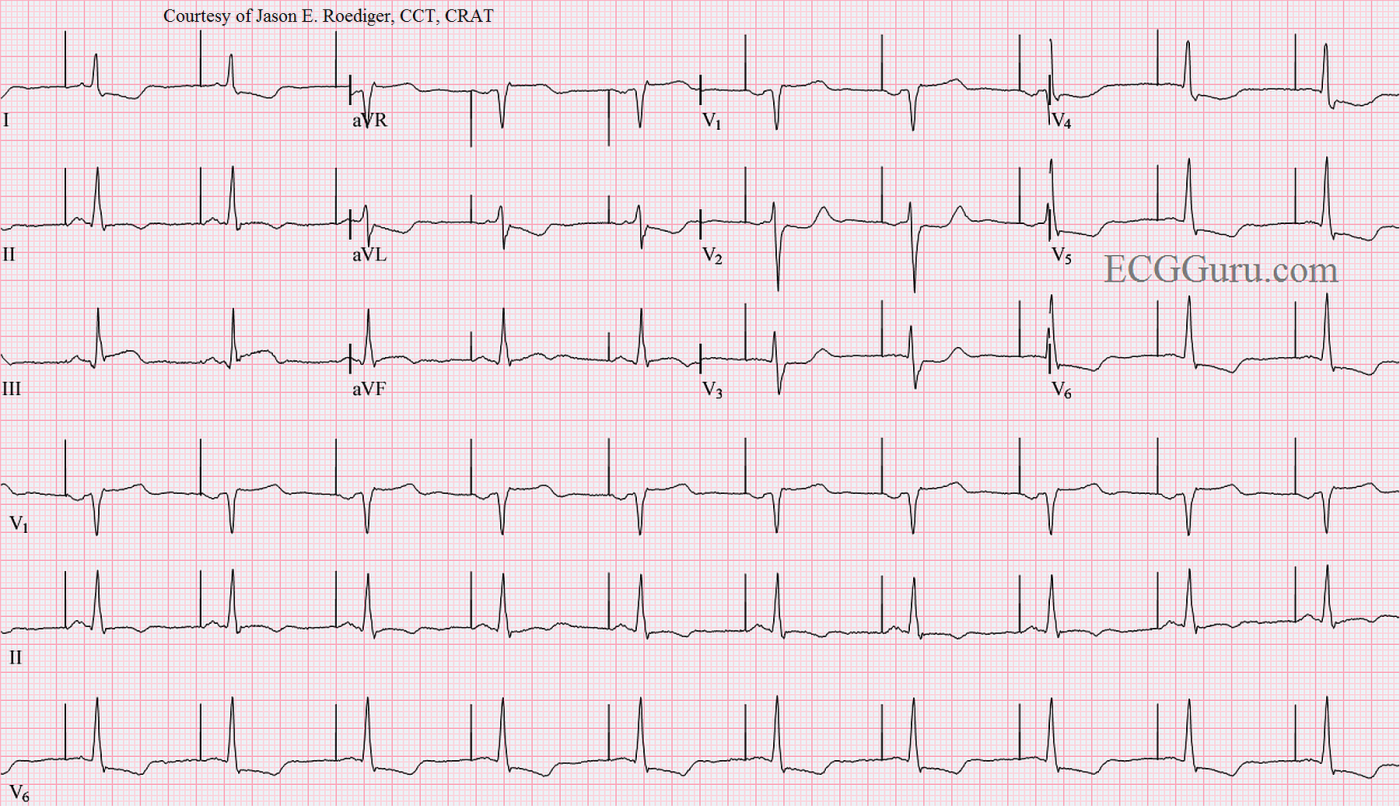Some people have been taught (incorrectly) that an electronic pacemaker prevents us from seeing an acute ST elevation M.I. Not true. It can be difficult to interpret ST elevation M.I. in the setting of WIDE QRS complexes. When this situation exists, it is best left to the experienced ECG interpreter to determine whether there is STEMI. In this ECG, we see ATRIAL pacing. The patient has an intact AV conduction system. The pacemaker paces the atria, and the impulse continues normally through the AV node and the ventricles. The QRS that results is normal (narrow). In this situation, the ST segments are accurate for determining ST elevation and depression.
This patient is a 74-year-old man who complained of chest pain for five days before presenting to his primary physician at the outpatient clinic. After obtaining this ECG, the PCP transferred his patient to the Emergency Department. He was admitted to the CCU with troponin level of 2.13 ng/ML. (Normal < 1.5 ML)
Our thanks to Jason Roediger, ECG GURU, for contributing this ECG.
All our content is FREE & COPYRIGHT FREE for non-commercial use
Please be courteous and leave any watermark or author attribution on content you reproduce.



Comments
Inf/Post wall?
Inf/Post wall?
Atrial Pacing
Comment via LinkedIn from Sella Roman, Technical Field Engineer at Medtronic, Inc., St. Louis
• It is when the patient is ventricularly paced all the time that you can't accurately diagnose ischemia/infarction. This is because the paced ventricular depolarization will have abnormal repolarization and when pacing is suspended, there is a phenonmenon called Cardiac Memory that causes the repolarization abnormality to persist. atrial pacing has no influence on the ventricular depolarization, and therefore, ischemia/infarction will be manifest just as it would in a patient without a pacemaker.
the request to turn the pacemaker off so a 12 lead ECG of the underlying rhythm can be obtained to make the diagnosis of ischemia or infarction should come with the warning that if the patient is 100% paced, cardiac memory will be present and may hinder diagnosis.
Dawn Altman, Admin